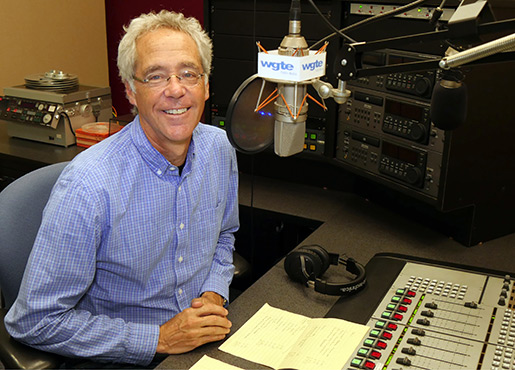
This Week on Jazz Spectrum – October 21
By Fritz Byers
Each of the first four sets of the show this week celebrates a jazz birthday.

We begin with Dizzy Gillespie (Oct. 21, 1917 – Jan. 6, 1993), the trumpet virtuoso whose showy personality and inveterate hijinks masked, or at least diverted attention from, one of the most penetrating minds and profound imaginations in the history of the music. His personal style leant a great deal to several of the enduring cultural stereotypes that surround jazz – the beatnik Bebopper and the off-kilter clownish rogue. Don’t be fooled. He stands with Louis Armstrong and Roy Eldridge as progenitors of the indelible role of the lead trumpeter in jazz, whether paired with a saxophonist in front of a small group or atop the pyramid of a big band.
The show opens with one of Dizzy’s signature pieces, a lucid exposition of the standard “I Can’t Get Started.” The rest of the set is a mélange of Dizzy brilliance, chosen all but at random. I’m particularly fond “Bebop,” from Something Old, Something New (1963), which paired Dizzy with the prolific saxophonist James Moody (whose solo on “I’m in the Mood for Love” was a centerpiece of the survey of last week’s Song of the Week) and the pianist Kenny Barron in one of his earliest appearances on record.
This weekend’s Jazz Spectrum Overnight presents in its entirety Dizzy’s 1975 recording, Afro-Cuban Jazz Moods, allowing a sustained view of Dizzy’s singular feel for poly-national voicings and rhythmic counterpanes.
Next, the saxophonist Don Byas (Oct. 21, 1913 – Aug. 24, 1972). Don forged his style from combining the swing of big-band sax sections with the commanding tone and ornate adventures of the tenorman Coleman Hawkins. The resulting blend was entirely his own. He had a broad romantic streak in his playing, but could marshal an aggressive attack within moments of finishing a relaxed melody statement. No less an authority than Charlie Parker said of Don that he played everything there was to play.
Driven abroad by American insouciance, Don spent the last quarter-century of his life in Europe, where he was invariably tracked down and hired to work with visiting musicians, including Duke Ellington, Dizzy, and Art Blakey.
The second set features his ravishing treatment of the evergreen “Stardust,” followed by a characteristically intricate work-out on “Byas-a-Drink.”
The third set, beginning around 9pm Eastern, is all Fred Hersch (Oct. 21, 1955 - ). Fred is a marvel in nearly any setting, from his entrancing solo adventures through his tasteful and adventurous trios to his peerless accompaniment of singers ranging from the classical-music vocalist Renee Fleming to the prototypical jazzer, Kurt Elling. Fred is building a recording legacy that I believe places him in the very highest ranks of jazz artists. (And don’t miss his autobiography, Good Things Happen Slowly.)
The set includes his familiar composition “Heartsongs,” performed with typical bounding joy in a solo setting; and then trio versions of three of the most beautiful tunes in all of jazz: Jimmy Rowles’s “The Peacocks; Billy Strayhorn’s “Star-Crossed Lovers”; and Ornette Coleman’s “Lonely Woman,” which Fred places in medley with “Nardis,” a Miles Davis tune that was a staple of Bill Evans’s repertoire.
(October 21 is also the birthday of the saxophonist Jerry Bergonzi (1947), whom you’ll hear in a small-group setting with Fred at the beginning of set 8.)
And the fourth set showcases the bassist Marc Johnson (Oct. 21, 1953 - ). Earlier this week, I posed a few thoughts on the bassists who over the years were part of Bill Evans’s trios. That piece dwells a bit on Marc’s music. In this set, you’ll hear his empathic interplay with the pianist Eliane Elias and an extraordinary solo-bass rendition of Eddie Harris’s classic, “Freedom Jazz Dance.”
- Home
- Schedules
- TV
- TV
- Local TV Programs
- Business | Life 360 with Kristi K.
- Toledo Stories
- To The Point with Doni Miller
- Listening with Keith Burris
- Ideas & Insights
- WGTE Presents
- BL360: Northwest Ohio Innovation Consortium
- Magic of the Old West End
- Freedom Means Never Surrender
- I&I: The Random Factor
- FF: National Cherry Festival
- TTP: Moms Demand Action For Gun Sense in America
- Watch Live
- Radio
- Education
- Community
- Support
- About
- Donate
- Watch Live



